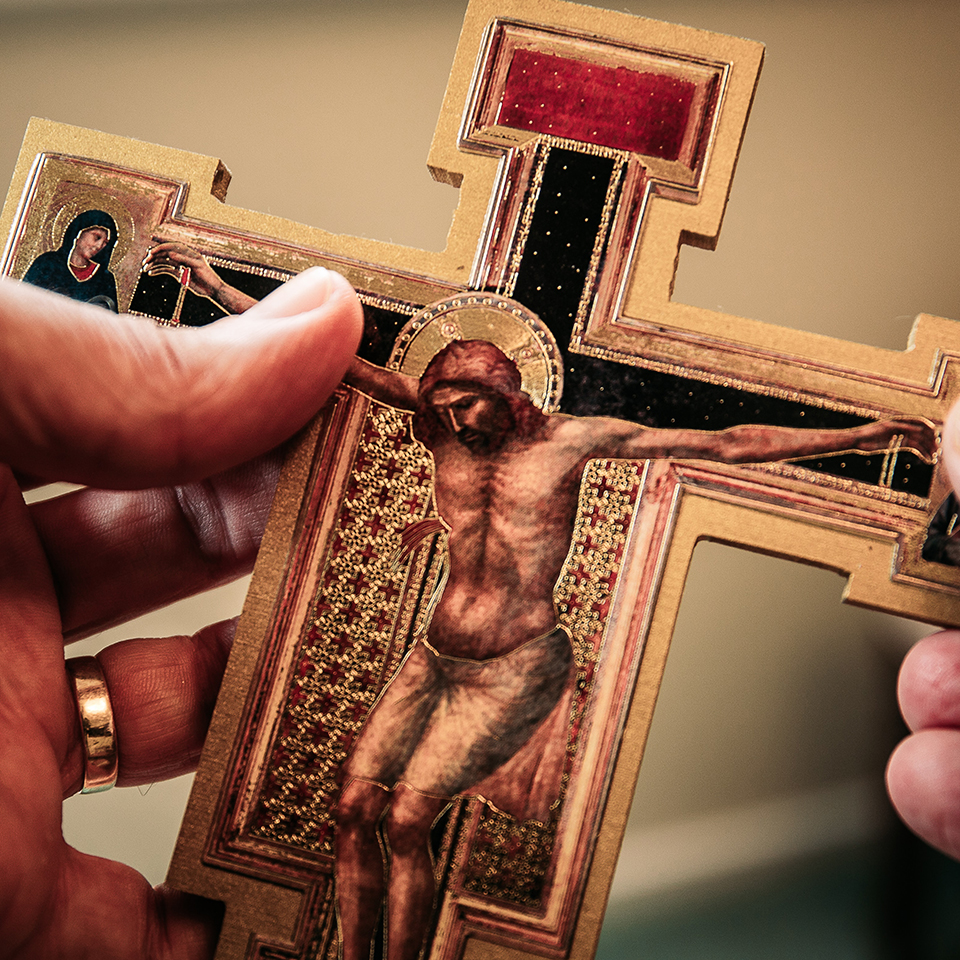In our prayer, we should frequently and fervently ask for an increase in virtues, like humility, mercy, patience, kindness, fortitude, or prudence. I have found over the years that God seems to take special joy in responding to petitions for an increase in this or that virtue, not by infusing that virtue into us so that its exercise becomes effortless, but by assailing us with circumstances that call that virtue forth from us.
Why? Because grace is always synergistic, evoking our free response to God’s action. By becoming human, God-with-us revealed himself not as a unilateralist but as a multilateralist who achieves his ends by inviting countless independent freedoms, angelic and human, to consider and respond to his proposed plan.
What a mess we have made of it all.
Indeed, it was bloody risky of God to venture down such a precarious path, though it is equally bloody risky for us to agree to his plan. But, as Nigel Mohammed once said, “Faith is spelled r-i-s-k.” Yes! The terrible beauty of risk, of surrender to the absolute mystery of a God whose love bears a weight and majesty only the Crucifixion can bear.
And we are made in the image and likeness of this Immortal Risk-taking Lover.
Seen this way, we can see better why prayer is risky business, as in prayer we open ourselves to hear of the dreams and plans of divine love, and are able to consider God’s “proposed world”—the unfolding of which awaits our absolutely unique cooperation and contribution. Because, again, God’s plan is always a contingency plan, contingent on our free response to his blueprint fully revealed in Christ—be our response for good or for ill.
This is truly the magnificence of the Passion of Christ, as there God shows us how his plan fully engages all our responses, both good and ill, to (re)create an inconceivable beauty that is to be fully unveiled only in the Final Judgment . . .
What no eye has seen, nor ear heard,
nor the human heart conceived,
what God has prepared for those who love him. (1 Cor. 2:9)
These thoughts I had this morning made me think of a story recounted by the late Orthodox Metropolitan Anthony Bloom. I will leave you with his reflection on how you and I—today—can become contributors to the building of this kingdom that is coming right now:
The lives of the saints are enlightening in this respect, and in the life of St. Philip Neri just such an occasion is described. He was an irascible man who quarreled easily and had violent outbursts of anger and of course endured violent outbursts from his brothers.
One day he felt that it could not go on. Whether it was virtue or whether he could no longer endure his brothers his Vita does not tell us. The fact is that he ran to the chapel, fell down before a statue of Christ and begged Him to free him of his anger. He then walked out full of hope.
The first person he met was one of the brothers who had never aroused the slightest anger in him, but for the first time in his life this brother was offensive and unpleasant to him. So Philip burst out with anger and went on, full of rage, to meet another of his brothers, who had always been a source of consolation and happiness to him. Yet even this man answered him gruffly.
So Philip ran back to the chapel, cast himself before the statue of Christ and said, “O Lord, have I not asked you to free me from this anger?” And the Lord answered, “Yes, Philip, and for this reason I am multiplying the occasions for you to learn.”
